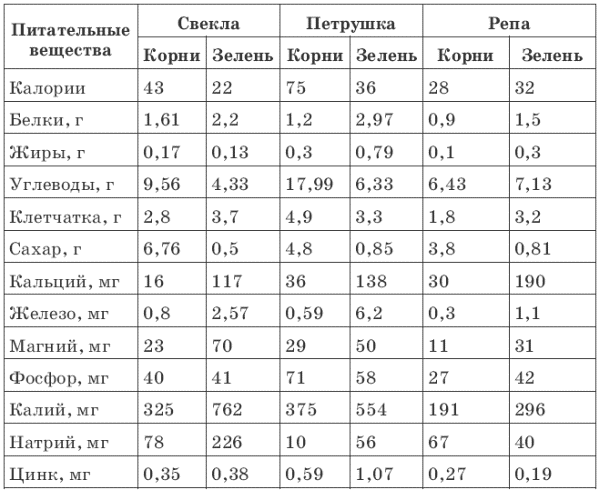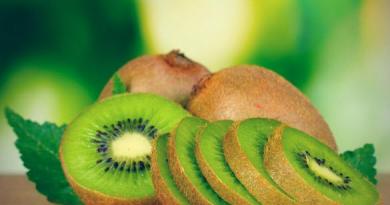August 27, 2014 3056
Once upon a time, turnips were one of the most popular foods, but now you rarely see this vegetable on our table.
Meanwhile, doctors all over Europe talk about this product as a storehouse of useful components.
Therefore, let's take a closer look at the properties of this vegetable.
Botanical description.
Turnip is a herbaceous plant, belongs to the Cabbage family.
Annual or biennial.
Early maturing, fully formed in 40-45 days, late varieties - up to 60 days.
Appearance:
- The root crop is smooth, yellow, fleshy, usually 8-20 cm in diameter, weight can reach 10 kg;
- The stem is high (40-60 cm) deciduous;
- Basal leaves are green, ovate.
A bit of history

Turnip is one of the oldest cultivated plants, it began to be grown almost 40 centuries ago.
Western Asia is considered the birthplace of this vegetable.
This plant was known in Ancient Egypt and Ancient Greece, where it was considered the food of the poorest segments of the population and slaves, as well as in Ancient Rome, where it was a common dish among all segments of the population.
Later, this vegetable became popular both in Western Europe and in Russia, where it became one of the main products.
This is evidenced even by Slavic folklore, in which she is mentioned quite often.
This vegetable played its role in human relationships.
For example, girls in Russia, treating a man with turnips, let him know that he did not cause sympathy.
However, in the 18th century, turnips were practically ousted from the diet by an "exotic" vegetable brought from America - potatoes.
Her popularity was not accidental.
It was also used for preparing various independent dishes (baked, stuffed, boiled), and as a side dish, and as a component in salads.
In addition, the possibility of long-term storage and the general usefulness of this vegetable made it simply indispensable in the diet of our ancestors.
Despite the fact that at present turnip has lost its popularity in the territory of the former Russia, in some European countries it is still a frequent guest at the dinner table.
And in the city of Richterswil (Switzerland) they even organize a turnip festival.
Chemical composition
Undoubtedly, turnip is an extremely healthy vegetable.
Even in ancient times it was noted that it prevents many diseases and cleanses the body.
An analysis of the chemical composition of this vegetable showed that this root contains a truly unique complex of substances that are able to maintain human health at a high level.
Among them:
vitamins
Vitamin C occupies a special place in its composition, its as much as 20 mg per 100 grams of vegetable, which is more than in any other root crop.
Also present are vitamins B1, B2, B5, PP.
Provitamin A (carotene), found in yellow turnips, is a powerful antioxidant.
Micro and macro elements
Turnip contains sulfur, which is necessary for blood purification.
Please note that, apart from turnips, you will not find this element in any other vegetable that is familiar to us.
Also in the composition of this root crop, copper, iron, manganese, zinc, magnesium, iodine are contained.
Separately, it should be noted that this vegetable is rich in potassium, which maintains a normal water balance in the body and stabilizes the nervous system.
An essential mustard oil that boosts immunity, improves digestion and has antibacterial properties.
Nitrogenous and nitrogen-free substances that have a beneficial effect on the digestive system.
Glucoraphanin, which has anti-cancer and anti-diabetic properties.
It is noteworthy that a natural element with such properties can only be found in turnips and several types of cabbage.
Proteins, fats and carbohydrates, which will be discussed in more detail below. That is, we can say that this product really has unique and most importantly useful properties.
Nutritional and energy value

The nutritional value of turnips may vary slightly depending on growing conditions and variety.
On average, 100 grams of turnip contains:
- 89.5 grams of water;
- 1.5 grams of vegetable proteins (including lysozyme, which has antimicrobial properties);
- 0.1 grams of fat (linoleic, palmitic, oleic and folic fatty acids);
- almost 6.5 grams of carbohydrates, including simple sugars, starch, dietary fiber (about 2 grams).
The energy value per 100 grams is 30-32 kcal.
Beneficial features
Such a rich content of nutrients determines the value of turnips for ensuring the normal functioning of the human body.
This vegetable can be used to treat diseases of the respiratory system, gastrointestinal tract, and joints.
It helps cleanse the blood and kidneys, has a healing and antibacterial effect.
More about benefits.
Favorably affects the functioning of the digestive system.
Turnip contains cellulose, which helps cleanse the stomach, remove harmful substances from the body, and restore bowel function.
Thus, not only clogging of the body is prevented, but also the stagnation of nutrients.
In addition, its use has a beneficial effect on the functioning of the liver, activates the secretion of bile, preventing the formation of stones in the gallbladder.
The use of this plant, for the treatment of diseases of the respiratory system.
This vegetable, due to its antibacterial properties, perfectly copes with colds and viral diseases.
A decoction of the root and juice relieves asthma symptoms, soothes sore throats, and helps restore a “shrunken” voice.
Turnip decoction is used to eliminate toothache and inflammation of the gums, because. The antibacterial properties of the vegetable help to effectively relieve inflammation.
In addition, it contributes to the overall strengthening of the teeth.
Due to its beneficial properties, with the help of turnips, you can improve the masculine qualities of character in men.
Useful properties for bones
This property of turnips is especially relevant for children, whose skeleton is just being formed, and for the elderly, whose skeletal system is noticeably weakening.
The use of this plant for the treatment of skin diseases.
This vegetable should pay attention to people suffering from acne and eczema.
Regular use of this plant in your diet enriches the body with sulfur salts necessary for cleansing.
For skin problems such as inflammation, abscesses, boiled turnip paste can help.
Cooking it is very simple, boiled turnips should only be kneaded.
It also improves muscle elasticity.
In cases where the condition of the joints deteriorates significantly, doctors may even recommend taking baths from decoctions of this plant.
As already noted, due to the peculiarities of its composition, turnip effectively helps patients with diabetes, and is also a good prophylactic against cancer.
Adding this plant to the diet will help to avoid vitamin deficiencies and simply strengthen the body as a whole.
With the help of juice made from turnip leaves, which has beneficial properties, softening of bones and teeth can be prevented.
Application in medicine
Modern research is discovering more and more beneficial properties of this vegetable.
In traditional medicine, it is mainly used as an expectorant for colds and as a diuretic (diuretic).
Traditional medicine is rich in a variety of recipes for medicines from turnips.
As an example, we offer a simple recipe for a healing decoction.
One or two tablespoons of crushed fruit pour boiling water (200 ml) and boil for 15 minutes.
Strain and take a quarter cup 4 times a day or 1 cup before bedtime.
Such a decoction is an excellent cough remedy, for insomnia, and is also effective as a laxative.
White turnip is excellent for cleansing the intestines, due to its beneficial and unique properties.
Application in cosmetology
As already mentioned, with the help of turnips, many skin problems can be solved.
For example, the juice of this plant has tonic and cleansing properties, so it can be used as a lotion for dry skin.
Masks from this plant are also effective.
A simple recipe for a carrot and turnip mask: boil these two vegetables and mash to a puree.
When the paste has cooled to room temperature, apply to the face for 15 minutes.
This mask cleanses and nourishes the skin, helps to keep it fresh and velvety.
For dry skin, a similar mask can be prepared by replacing carrots with honey and olive oil.
In addition to the fruit, young shoots of tops are useful, they also have extremely useful properties.
By eating them, for example, as part of a salad, you can also get rid of acne and ulcers.
Fresh turnip juice strengthens hair, accelerates its growth and helps fight dandruff.
Therefore, it can be safely written down as a faithful assistant to your beauty.
The benefits of turnips in the fight against excess weight

Turnip is very nutritious, but at the same time low in calories, so it perfectly satisfies hunger without contributing to an increase in body fat.
And the beneficial effect of this plant on the digestive system also has a positive effect.
Its use speeds up metabolic processes in the body, thereby helping to effectively fight excess weight.
Therefore, it is useful to replace potatoes with turnips in your nutrition system, and also add a salad of fresh turnips, carrots and bell peppers to your diet.
Contraindications
Like any product, turnip, in addition to its beneficial properties, also has negative ones. Consider contraindications for the use of this plant.
You should stop using turnips for those who suffer from inflammation of the liver, kidneys, intestines, stomach diseases, colitis, gastritis.
Videos dessert
In this video, you will be shown how you can use turnips for the benefit of the body, as well as a recipe for storing radishes, with which all its beneficial properties will be preserved.



